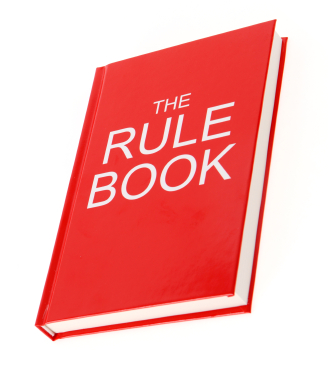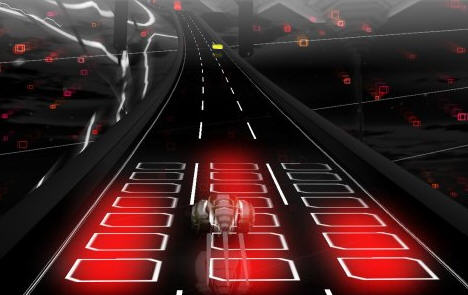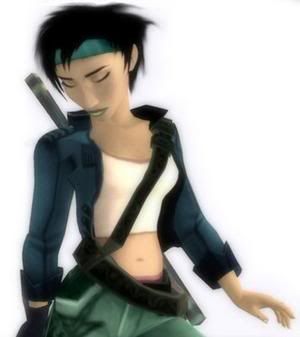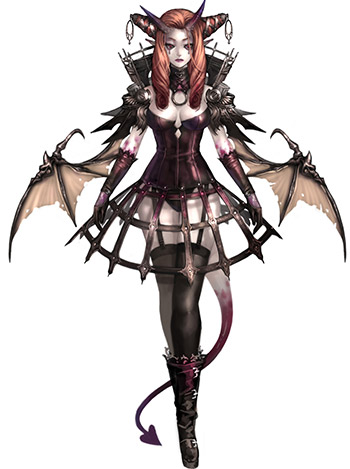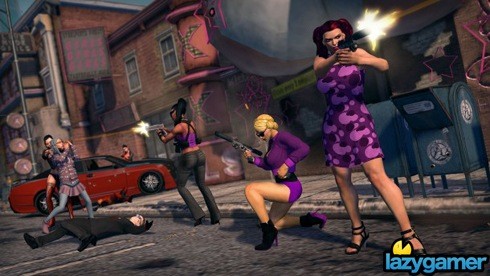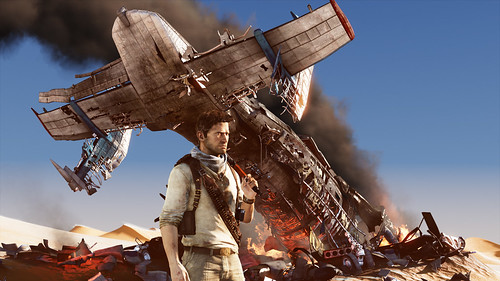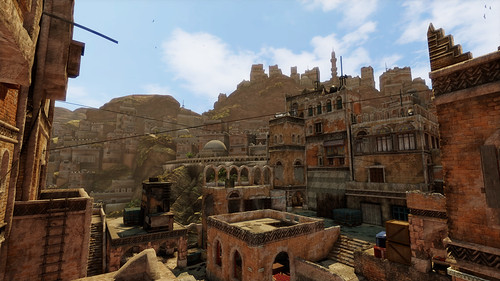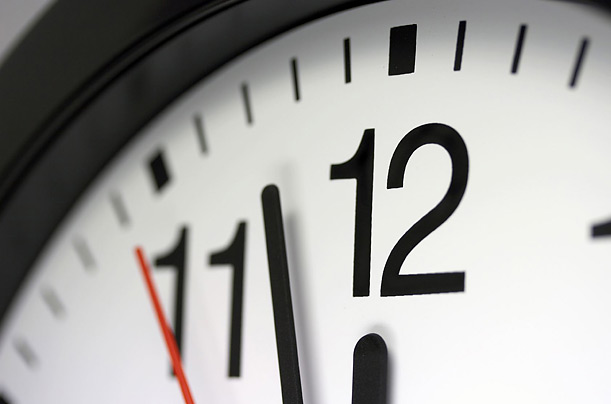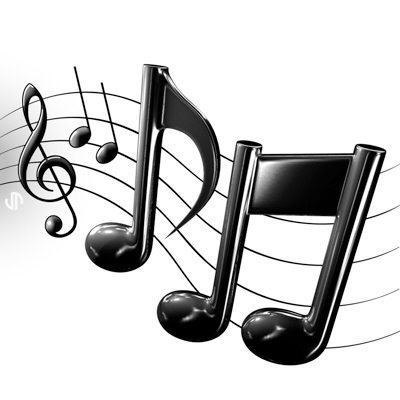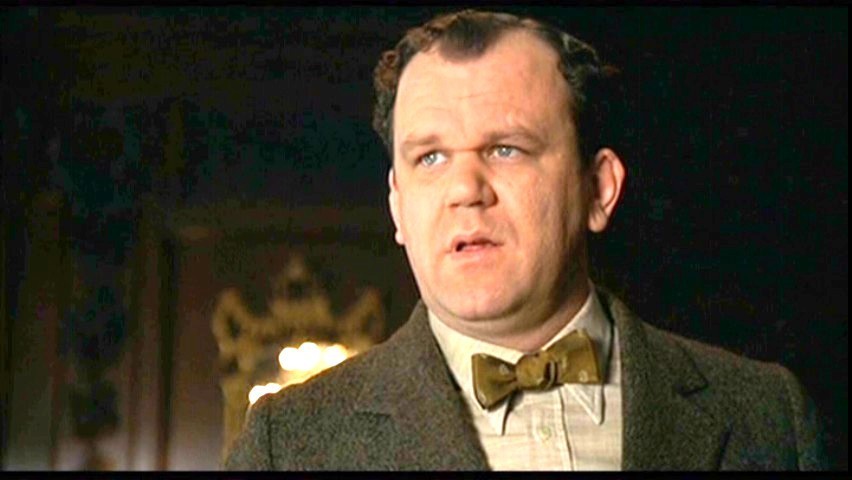The Cartoon Law - No Laws Of Physics, Chemistry, Biology, Mathematics Or What-Have-You Apply:
What Is It?
Around the time that animation had been starting up as something crisper and smoother, there came a new way to tell all sorts of stories imaginable. As the medium grew, an idea somehow managed to come about among these artists to disregard any bit of logic into their works. Rather than an anvil turning a person into a splattered tomato on the pavement, it would turn them into a pancake that would waddle about, and eventually come back to normal. This started the formation of the Cartoon Law, that allowed animators to make tons of sight gags as well an excuse to do terrible things to a cartoon character that wouldn't be as harmful if they relied on the reality of this situation.
Why Is It Significant?
The Cartoon Law was what made the Golden Age of Animation thrive. Animation directors such as Tex Avery and Chuck Jones used this idea to create classic jokes such as the pop-out eyes, the portable hole, the piano keys teeth, the accordion guy, the explosion reaction shot as well as allow for great fourth wall breakers that reference the mere absurdity of the world that they live in. Without it, shows likes the Looney Tunes and Tom And Jerry wouldn't have been the successes that they are. The cartoon law seeped out to other mediums and even borrowed from previous mediums that slowly transformed the fictional world into something much more detached from reality.
What Problems Came Of It?
It's not all too certain if this is true, but it seems as though that cartoon logic can be hard to distinguish from to a younger audience. They may believe that the characters they see on TV and that if they do what they do, they'll remain unscathed. Again, it's hard to know how true this is, but the greater problem came from mixing it into a more realistic setting or mixing cartoon logic with actual logic (explained later on). The former being perhaps a reason why some believe that you can do certain actions without any trouble. Now this sort of mix-up of what is right and what is wrong could also be factored to how factual the work is.
What Is It?
Around the time that animation had been starting up as something crisper and smoother, there came a new way to tell all sorts of stories imaginable. As the medium grew, an idea somehow managed to come about among these artists to disregard any bit of logic into their works. Rather than an anvil turning a person into a splattered tomato on the pavement, it would turn them into a pancake that would waddle about, and eventually come back to normal. This started the formation of the Cartoon Law, that allowed animators to make tons of sight gags as well an excuse to do terrible things to a cartoon character that wouldn't be as harmful if they relied on the reality of this situation.
Why Is It Significant?
The Cartoon Law was what made the Golden Age of Animation thrive. Animation directors such as Tex Avery and Chuck Jones used this idea to create classic jokes such as the pop-out eyes, the portable hole, the piano keys teeth, the accordion guy, the explosion reaction shot as well as allow for great fourth wall breakers that reference the mere absurdity of the world that they live in. Without it, shows likes the Looney Tunes and Tom And Jerry wouldn't have been the successes that they are. The cartoon law seeped out to other mediums and even borrowed from previous mediums that slowly transformed the fictional world into something much more detached from reality.
What Problems Came Of It?
It's not all too certain if this is true, but it seems as though that cartoon logic can be hard to distinguish from to a younger audience. They may believe that the characters they see on TV and that if they do what they do, they'll remain unscathed. Again, it's hard to know how true this is, but the greater problem came from mixing it into a more realistic setting or mixing cartoon logic with actual logic (explained later on). The former being perhaps a reason why some believe that you can do certain actions without any trouble. Now this sort of mix-up of what is right and what is wrong could also be factored to how factual the work is.
The Indiana Jones Principle - Certain Reality-Bending Ideas Are Alright, But When You Nuke The Fridge, You've Gone Too Far:
What Is It?
Simply put, it's when one outlandish action doesn't faze anyone in a work, but then another outlandish action seems incredibly aggravating to see in the same work.
Why Does X Seem Okay To A Public Yet When Y Is Brought Up, It Pisses People Off?
This baffled me for a while, but here's the way I see it. Given the context of the world around you, you have to manage to be outlandish is a way that still keeps itself within the realms of the world itself. That's what allows for the suspension of disbelief. They can be okay with someone being able to walk on water if the world allows a person to do such. Now if you do something that is way too bizarre for the world that you already create, you shatter that suspension of disbelief, upsetting people in the audience. Another problem is that if you already establish something surreal in a story and then disregard it for another surreal idea, then people will claim that you're not following the continuity of your own world correctly.
Have There Ever Been Examples Of This Before Kingdom Of The Crystal Skull?
Absolutely. Many action films, including James Bond, fall under this sort of principle at times. The difference though is that the Crystal Skull made itself famous for "nuking the fridge" as well as being a disappointing re-imagining of an iconic series.
What Is It?
Simply put, it's when one outlandish action doesn't faze anyone in a work, but then another outlandish action seems incredibly aggravating to see in the same work.
Why Does X Seem Okay To A Public Yet When Y Is Brought Up, It Pisses People Off?
This baffled me for a while, but here's the way I see it. Given the context of the world around you, you have to manage to be outlandish is a way that still keeps itself within the realms of the world itself. That's what allows for the suspension of disbelief. They can be okay with someone being able to walk on water if the world allows a person to do such. Now if you do something that is way too bizarre for the world that you already create, you shatter that suspension of disbelief, upsetting people in the audience. Another problem is that if you already establish something surreal in a story and then disregard it for another surreal idea, then people will claim that you're not following the continuity of your own world correctly.
Have There Ever Been Examples Of This Before Kingdom Of The Crystal Skull?
Absolutely. Many action films, including James Bond, fall under this sort of principle at times. The difference though is that the Crystal Skull made itself famous for "nuking the fridge" as well as being a disappointing re-imagining of an iconic series.
Coin-Flip Reality - I Would Have Also Accepted "Who Turned Off The Surreal?":
What Is It?
Imagine if you will you had a lever. When you pull it upwards, everything follows with the confines of reality. When you pull it downwards, you immediate make everything surreal again. Whenever you feel like it, you can either pull the lever up or down, depending of you want to be serious or if you want to incorporate more slapstick.
Doesn't This Relate A Lot With Cartoon Logic?
Pretty much. Both of these two go hand in hand, and most of the time and cartoons are the ones that use the coin-flip reality the most for some of the jokes as well as some of the drama in it.
What's The Problem?
The crux of using coin-flip reality is that you make the logic of the world seem inconsistent. Sometimes you pull the lever too much that it's unsure if the world is supposed to be realistic or not. Other times, you create a loop-hole by not explaining why at one point something bizarre happen yet at another point it followed directly with how logic would dictate the scenario. You can also claim that using a more realistic feel for something to create for drama and throwing away common sense for a few chuckles comes off as sloppy, lazy and a tad forced.
What Is It?
Imagine if you will you had a lever. When you pull it upwards, everything follows with the confines of reality. When you pull it downwards, you immediate make everything surreal again. Whenever you feel like it, you can either pull the lever up or down, depending of you want to be serious or if you want to incorporate more slapstick.
Doesn't This Relate A Lot With Cartoon Logic?
Pretty much. Both of these two go hand in hand, and most of the time and cartoons are the ones that use the coin-flip reality the most for some of the jokes as well as some of the drama in it.
What's The Problem?
The crux of using coin-flip reality is that you make the logic of the world seem inconsistent. Sometimes you pull the lever too much that it's unsure if the world is supposed to be realistic or not. Other times, you create a loop-hole by not explaining why at one point something bizarre happen yet at another point it followed directly with how logic would dictate the scenario. You can also claim that using a more realistic feel for something to create for drama and throwing away common sense for a few chuckles comes off as sloppy, lazy and a tad forced.
The World Creating Rulebook - When You Want To Put Your Own Realism In Your Own Surrealism:
How Does This Exactly Work?
The idea behind the World Creating Rulebook is that you're applying surreality into something that feels more realistic, so that you can have your own list of what is plausible and what is not in your world that you're creating. The way this can come about though is two ways, Dali's way and the Comic Book's way.
What's The Difference Between Dali's Way And The Comic Book's Way?
Dali's surrealism-to-realism relies on making surreal imagery look real. This usually relies on adding as much detail as possible and following the facts of what you're going to use and then applying them properly. For example, say you want to have a man with a duck for a head and a wheel for a lower body. You'd figure out how a duck can move his head, how often it would quack, when it moves it's head closer to something as well as figuring out how the upper half moves when the wheel rolls and how big the wheel must be so that the new creation can move about better. This makes the creation linger between both fields giving for a sense on uncertainty or intrigue to an audience.
The Comic Book's surrealism-to-realism is different. It gives the surreal rules as there would be for gravity, mathematics or physics. It gives limits to something seems as though it wouldn't to make it feel as if it was more realistic. A good way to describe this is saying that mythical beasts get tired at a certain point and have to eat a specific nutrient to regain their energy. This shows that whoever was working to make this world tried to give as much detail as possible and helps a world feel more three-dimensional.
Aren't There Issues With Doing This Though?
Dali's way has the problem that not much is explained with how this came to be and can be considered as something that's just random for the sake or random. Dali's way also has the issue that some people don't execute the idea properly. They forget details and make their surreal image look bizarre. Other times, it seems to look so real that it can creep out and startle people with the way it looks. The former happens more often than the latter though. The Comic Book's way, on the other hand, has to be kept up-to-date and has to be followed as closely as possible. People can sometimes focus on continuity errors that occur, which breaks for that feeling that you're being attentive to the details of the world or you making your characters seem like idiots because they forget an aspect you put out. There's also the problem that if you make your own logic, you can create logical problems if you insert something into the world that further confuses people.
Conclusion:
Surrealism is a wonderful concept to explore in your works. It's what makes fiction feel like an epic fantasy rather than just a simple what-if. With all concepts in this world, it runs up to some problems especially when it blurs with reality. Despite that, whenever it works, it works wonders, making creations look impressive, intriguing, and perhaps thought-provoking.
How Does This Exactly Work?
The idea behind the World Creating Rulebook is that you're applying surreality into something that feels more realistic, so that you can have your own list of what is plausible and what is not in your world that you're creating. The way this can come about though is two ways, Dali's way and the Comic Book's way.
What's The Difference Between Dali's Way And The Comic Book's Way?
Dali's surrealism-to-realism relies on making surreal imagery look real. This usually relies on adding as much detail as possible and following the facts of what you're going to use and then applying them properly. For example, say you want to have a man with a duck for a head and a wheel for a lower body. You'd figure out how a duck can move his head, how often it would quack, when it moves it's head closer to something as well as figuring out how the upper half moves when the wheel rolls and how big the wheel must be so that the new creation can move about better. This makes the creation linger between both fields giving for a sense on uncertainty or intrigue to an audience.
The Comic Book's surrealism-to-realism is different. It gives the surreal rules as there would be for gravity, mathematics or physics. It gives limits to something seems as though it wouldn't to make it feel as if it was more realistic. A good way to describe this is saying that mythical beasts get tired at a certain point and have to eat a specific nutrient to regain their energy. This shows that whoever was working to make this world tried to give as much detail as possible and helps a world feel more three-dimensional.
Aren't There Issues With Doing This Though?
Dali's way has the problem that not much is explained with how this came to be and can be considered as something that's just random for the sake or random. Dali's way also has the issue that some people don't execute the idea properly. They forget details and make their surreal image look bizarre. Other times, it seems to look so real that it can creep out and startle people with the way it looks. The former happens more often than the latter though. The Comic Book's way, on the other hand, has to be kept up-to-date and has to be followed as closely as possible. People can sometimes focus on continuity errors that occur, which breaks for that feeling that you're being attentive to the details of the world or you making your characters seem like idiots because they forget an aspect you put out. There's also the problem that if you make your own logic, you can create logical problems if you insert something into the world that further confuses people.
Conclusion:



